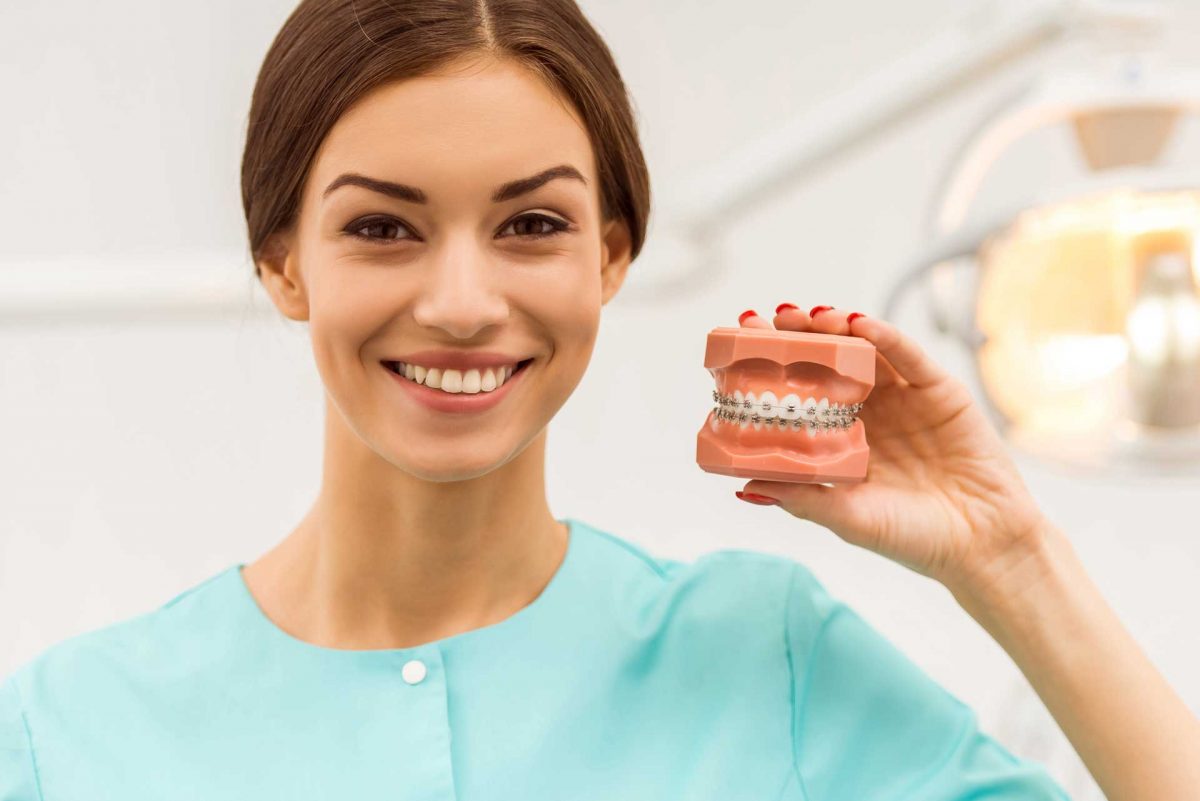A la hora de realizar un tratamiento de ortodoncia, lo que más buscan los pacientes es la efectividad sumado a la comodidad. Sin embargo, hasta hace no mucho tiempo, la única opción posible eran los clásicos brackets de metal.
Por suerte, la tecnología ha evolucionado y gracias a la innovación de estos tratamientos, y ahora exite cualquier tipo de ortodoncia . Así que a la hora de acudir a tu dentista para comenzar un tratamiento de este tipo, podrás elegir entre una amplia variedad de brackets incluyendo el nuevo tratamiento invisalign.
¿Qué tipo de brackets existen?
Además de los clásicos brackets de metal, actualmente existen otros tipos de ortodoncia, como los brackets de zafiro, brackets de cerámico, brackets de resina, policarbonato y plástico, y las férulas invisalign también llamada ortodoncia invisible.
La decisión en cuanto a las preferencias entre una y otra no recae exclusivamente sobre el paciente. También sobre el dentista deberá evaluar cuál es el más conveniente en función de la situación dental de este.
Ventajas y desventajas de cada tipo de ortodoncia
La ortodoncia metálica no solo es la más conocida, también la más usada. Su principal ventaja es que son económicos en relación al resto, poseen gran durabilidad y también son fáciles de mantener. Su principal desventaja es estética.
Los brackets de zafiro, tienen como principal ventaja su aspecto estético ya que son prácticamente transparentes, tienen gran durabilidad y funcionalidad. Además son altamente efectivos, lo que lo hace el favorito de muchos pacientes. Sin embargo su precio elevado impide que la mayoría pueda acceder a ellos.
Los brackets cerámicos quizás sean la opción más conveniente puesto que son transparentes, lo que lo hace estéticamente interesante y son más económicos que los de zafiro, con lo cual se están convirtiendo en una de las opciones más solicitadas.
La última opción de brackets es la de resina policarbonato y plástico. Su principal ventaja es estética puesto que por todo lo demás solo presenta inconvenientes, ya que se pierden y se quiebran con facilidad aunque por su precio económico suelen ser muy solicitados.
Por otra parte, tenemos el tratamiento ortodóntico mediante férulas, también conocido como ortodoncia invisible o Invisalign. Hasta hace unos años solo era utilizado para corregir malposiciones leves, no pudiendo corregir problemas más complejos como lo logra la ortodoncia tradicional.
Evolución tecnologica
Sin embargo, la evolución tecnológica que ha experimentado esta técnica actualmente permite que se pueda corregir casi cualquier problema de maloclusión dental y alineación dental.
Con las férulas se consiguen resultados mucho antes que con los brackets convencionales. Incluso permiten la colocación de elásticos intermaxilares en caso de que sea necesario para acelerar el tratamiento o su eficacia.
Estos alineadores están fabricados en un material termoplástico transparente exclusivo para adaptarse a los dientes y su principal atractivo es estético puesto que son prácticamente imperceptibles.
Por último cabe destacar que este tipo de tratamiento es muy predecible y el paciente puede saber cuáles serán los resultados antes de comenzar el tratamiento gracias al software y el scanner 3D con el que están diseñados.












